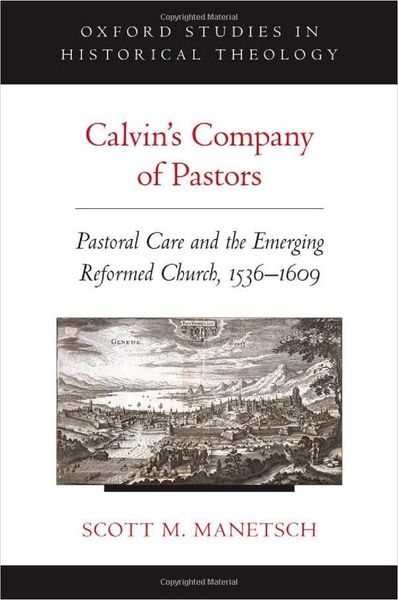
Calvin's Company of Pastors Pastoral Care and the Emerging Reformed Church, 1536-1609
In Calvin's Company of Pastors, Scott Manetsch examines the pastoral theology and practical ministry activities of Geneva's reformed ministers from the time of Calvin's arrival in Geneva until the beginning of the seventeenth century. During these seven decades, more than 130 men were enrolled in Geneva's Venerable Company of Pastors (as it was called), including notable reformed leaders such as Pierre Viret, Theodore Beza, Simon Goulart, Lambert Daneau, and Jean Diodati. Aside from these better-known epigones, Geneva's pastors from this period remain hidden from view, cloaked in Calvin's long shadow, even though they played a strategic role in preserving and reshaping Calvin's pastoral legacy. These "forgotten" reformed pastors, together with Calvin himself, are the central characters of this book. Making extensive use of archival materials, published sermons, catechisms, prayer books, personal correspondence, and theological writings, Manetsch offers an engaging and vivid portrait of pastoral life in sixteenth- and early seventeenth-century Geneva, exploring the manner in which Geneva's ministers conceived of their pastoral office and performed their daily responsibilities of preaching, public worship, moral discipline, catechesis, administering the sacraments, and pastoral care. Along the way, a variety of important subsidiary questions are explored, including: In what ways did the practice of preaching and church discipline change in Geneva after Calvin? What were some of the different ways that lay people in Geneva responded to the ministers' sermons and corrective discipline? In what ways were the structure and practice of pastoral ministry in Geneva similar to or different from other Protestant churches during the period? What can be learned about the ministers' religious priorities and pastoral concerns from their published writings? To what extent did Geneva's religious leaders such as Beza, Daneau, and Goulart remain faithful to Calvin's theological legacy and religious program? Manetsch demonstrates that Calvin and his colleagues were much more than "talking heads," dispensing theological information to the people in their congregations. Rather, they saw themselves as spiritual shepherds of Christ's Church, and this self-understanding shaped to a significant degree their daily work as pastors and preachers. This careful study of religious life in Geneva from 1536 to 1609 also shows that the clerical office in Geneva changed in subtle ways during the half-century after Calvin's death, even as the Company of Pastors remained committed to the reformer's pastoral vision.